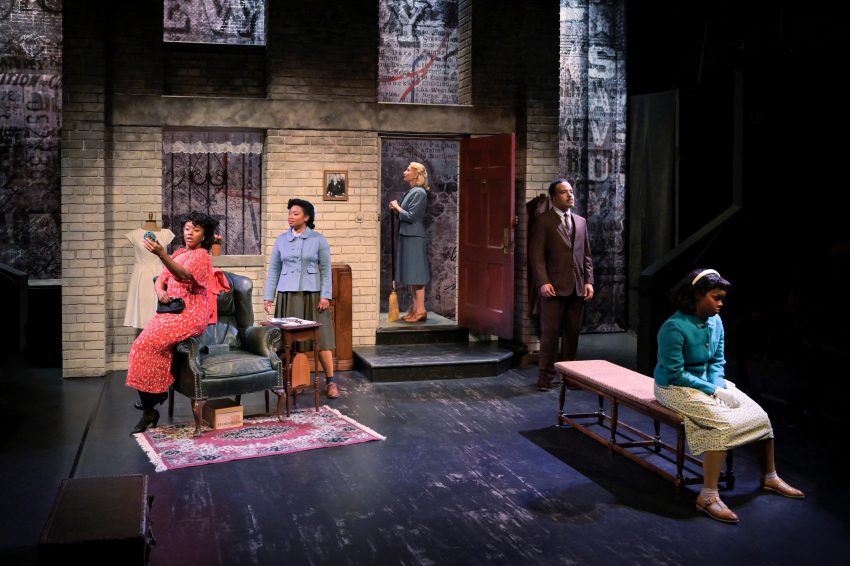
“Crumbs from the Table of Joy”: A True American Story—at Aurora
Lynn Nottage Revives Crucial Conflict in Civil Rights Era
by Kheven Lee LaGrone
Playwright Lynn Nottage is the only woman in history to have won two Pulitzer Prizes for Drama. Her early work, “Crumbs from the Table of Joy,” set in 1950 Brooklyn, is the story of a devoted follower of Father Divine, a religious leader, who amassed great wealth and influence. Some called Father Divine a cult leader because he claimed to be God. Many of his followers believed him. Years later, he influenced cult leader Jim Jones.
Nottage tells the story through the eyes of seventeen-year-old Ernestine Crump (Ann Marie Sharpe), who confides her hopes and dreams directly to us.According to Ernestine, her father Godfrey Crump (David Everett Moore) had been “a worldly man” down in Florida. However, he is crippled emotionally after his wife, her mother, dies. After Godfrey writes to Father Divine, he receives a “blessing letter” that gives him guidance. He believes the blessing has cured him, which changes his life.
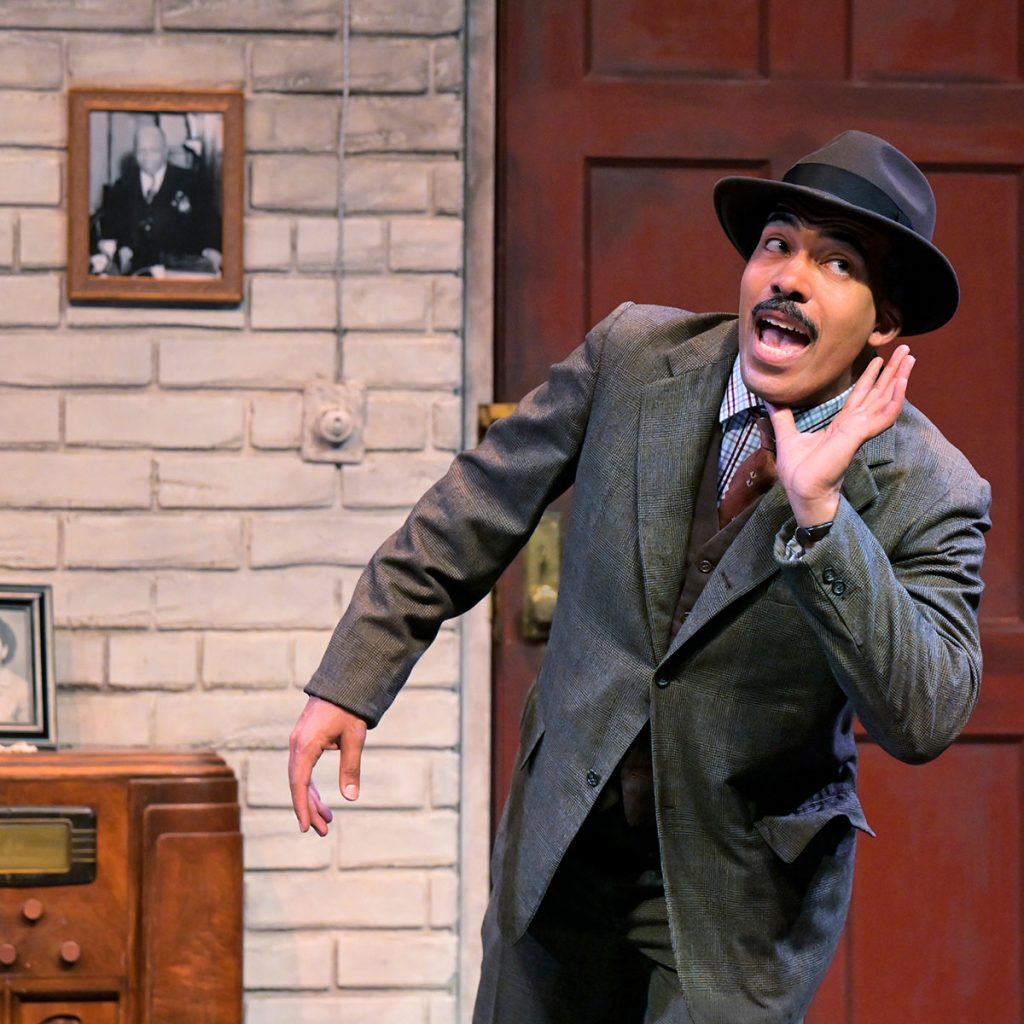
Because Godfrey believes Father Divine lives in Brooklyn, he moved his family from Florida to Brooklyn. Godfrey and his daughters, Ernestine and fifteen-year-old Ermina (Jamella Cross), settle in a grim basement apartment. At Aurora, the apartment looks prim and proper, rather than reflecting the newly arrived working class family.
Godfrey obsessively writes to “Sweet Father,” seeking more blessings, which arrive with requests for money. Godfrey makes religion his elixir and becomes passive and dependent. In Brooklyn, Ernestine’s father devotes his life to Father Divine. But Ernestine and her sister are skeptical. Nottage weaves a tale about their family’s schism and their frustrating adjustment to life in the north.
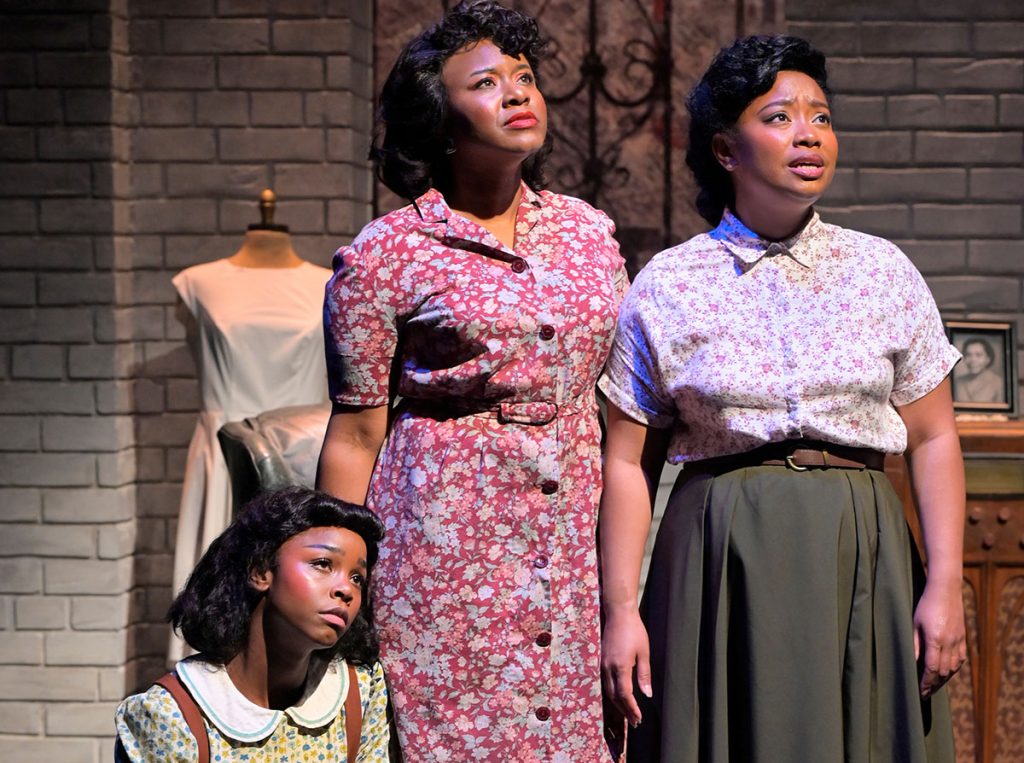
Lily Ann Green (Asia Nicole Jackson), his wife’s sister, pops up at their apartment to help raise the girls. However, Lily is everything Godfrey is afraid his daughters will become. Lily Ann is a revolutionary thinker who stands up for herself. Lily and Godfrey argue constantly. She even states that she hates Father Divine.
The struggle between Godfrey and Lily represents a struggle in Black America in 50s. Do they passively wait for religion to save them? Or do they fight to save themselves?
Nottage seems to suggest an answer to that question when Godfrey meets and marries Gerte Schulte (Carrie Paff), a German woman. Interracial marriage is taboo, even in the North. But Father Divine, a Black man, is married to a white woman, so Godfrey assumes that God approves. But white men attack Godfrey when they see him with Gerte.
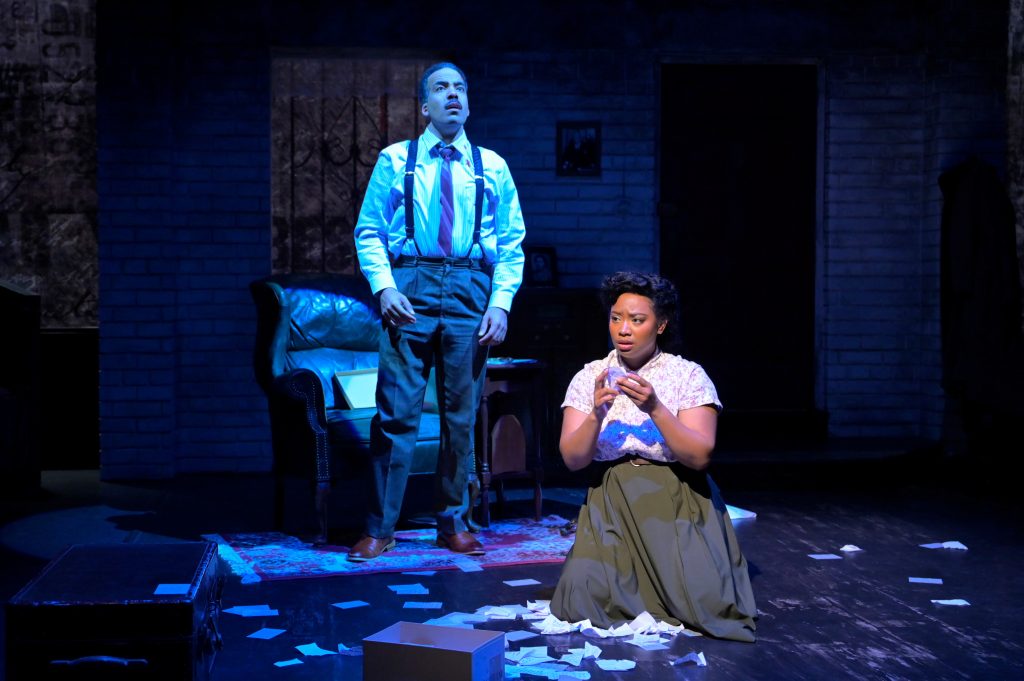
They do not touch Grete. Her white skin shields her from racial violence. Godfrey is angry. He doesn’t think about seeking Father Divine’s guidance. He just wants to fight the men. That incident made Godfrey a fighter, a revolutionary.
The 50s were a politically dynamic time in America. Through the fictional voice of Ernestine Crump, Nottage gives us a look at how regular people, not just Black leaders, made change. Director Elizabeth Carter highlights comedic timing and intimate moments to illuminate each character’s motivations—a charming bit of our almost lost history.
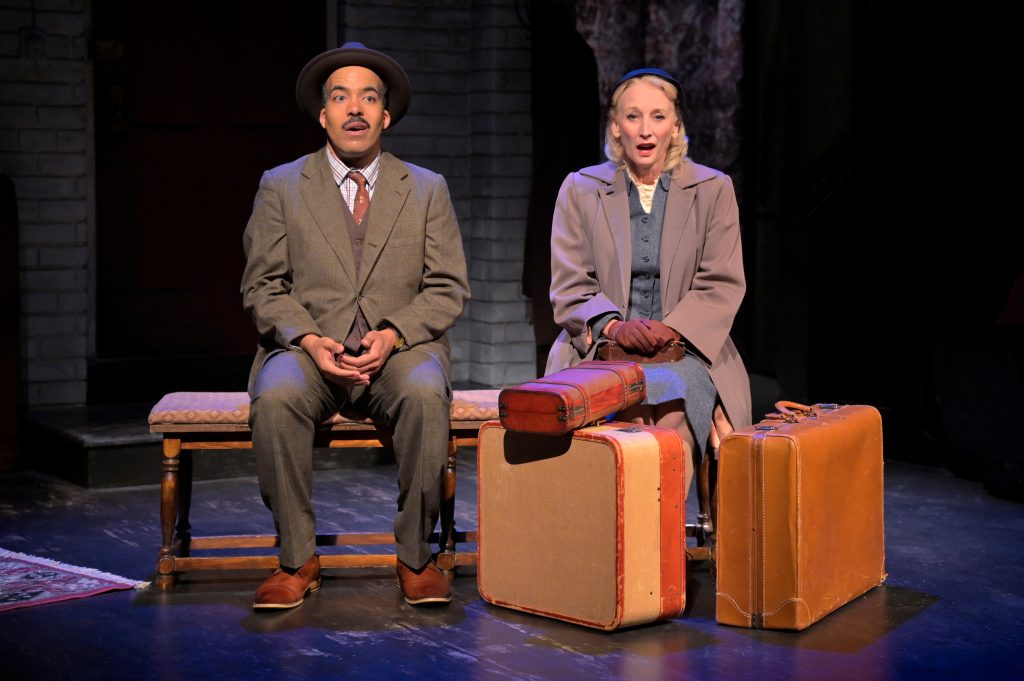
“Crumbs from the Table of Joy” by Lynn Nottage, directed by Elizabeth Carter, scenic design by Randy Wong-Westbrooke, sound design by Ray Archie, lighting by Kevin E. Myrick, costumes by Becky Bodurtha, props by Vincent Khiet Chau, at Aurora Theatre, Berkeley, California. Info: auroratheatre.org – to May 25, 2025.
Cast: Jamella Cross, Asia Nicole Jackson, David Everett Moore, Carrie Paff, and Anna Marie Sharpe.
Banner photo: Asia Nicole Jackson, Anna Marie Sharpe, Carrie Paff, David Everett Moore, & Jamella Cross. Photos: Kevin Berne